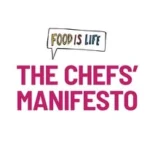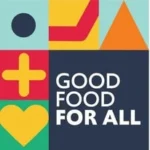



By Ms Halka Otto, Senior Adviser, Office of the Deputy Director-General, FAO
The world faces unprecedented global challenges – from climate change impacts and a growing population, to rampant urbanization and dwindling natural resources – that affect the sustainability of our food and agriculture systems. Rapid advances in agricultural innovation that address climate change and support family farmers are crucial to realize the Sustainable Development Goals and a Zero Hunger world.
Family farmers – the nearly 800 million people who manage ¾ of the world’s agricultural land and produce about 80 percent of the world’s food – have long been agricultural entrepreneurs and innovators. Fostering their capacity to innovate is especially important today to meet the future food demands from a projected population of nearly 10 billion people in 2050.
Chefs – who rely on farmers for vital products – also play a key role in our food system, they are at the crossroads between the farmer and the consumer, connecting through the creative process of cooking. And chefs not only help feed people, they also feed trends and influence markets.
Realizing how essential it is to bring everyone to the table, during the first-ever International Symposium on Agricultural Innovation for Family Farmers held at the Food and Agriculture Organization of the United Nations earlier this month, a group of chefs and family farmers from around the world came together for a special event. Discussing what innovation in agriculture means to them and how they can better work together to achieve Zero Hunger, they gave the audience a lot of food for thought.
Picture 1: A panel of chefs and farmers. From right to left, Italian farmer Andrea Gaudenzi; Brazilian Chef Bela Gil; Ghanaian Chef Elijah Amoo Addo; FAO Deputy Director-General Maria Helena Semedo; Indian Chef Anahita Dhondy; Finish Chef Kim Palhus; Spanish farmer Leire Arana; and moderator Ms Hlami Ngwenya.
With great enthusiasm and energy, the chefs and farmers shared cooking secrets, special ingredients, forgotten foods, traditions, and unlikely recipes. Each exuded a fiery passion, commitment and drive to transform our food system and way we eat to be more sustainable, accessible, diverse and respectful – for ourselves and our planet.
They challenged the audience to think and act differently – to do better. To use fresh and local quality products, to be mindful of wasting, to bring healthy eating habits into the home, to innovate by reviving traditional ingredients and ways. In short, to make wise and responsible choices that are good for our health, our environment, our future.
Picture 2: Chef Anahita brought finger millet from India to share as an example of chefs working closely with farmers and championing healthier, affordable diets.
Today, more than ever, we must change how we use the bounties of our planet to grow, prepare, process and consume the food we produce. The number of hungry is one the rise for the third year running. At the other end of the spectrum, one in 8 adults is obese. And one-third of our food is lost or wasted every year.
One recipe that can help reverse these trends is to strengthen the relationship between farmers and chefs – to better connect the field and the fork. Together, farmers and chefs – both at the heart of the food community – need to take advantage of opportunities to work more closely and learn from each other, innovating to promote both sustainable food systems and nutrition, guiding and inspiring consumers and jointly advocating for healthier, affordable diets.
Learn about the participants:
- Anahita Dhondy, India – Chef Manager of SodaBottleOpenerWala restaurant / advocate for forgotten foods
- Elijah Amoo Addo, Ghana – Founder of the Food For All Africa Programme / advocate against food loss and waste
- Bela Gil, Brazil – Celebrity Chef /advocate for healthy eating and against child obesity
- Kim Palhus, Finland – Food Ambassador and Entrepreneur/ advocate for local, quality, traditional food
- Leire Arana, Spain – Marketing Manager for the Fundacion valle Salado, the farmers organization for the salt production system of Anana, a Globally Important Agricultural Heritage Site
- Andrea Gaudenzi, Italy – International Sales for family-owned Gaudenzi oil, Umbrian terraced oil groves that are part of a Globally Important Agricultural Heritage Site
- Ms Hlami Ngwenya, South Africa– International development consultant and facilitator.






